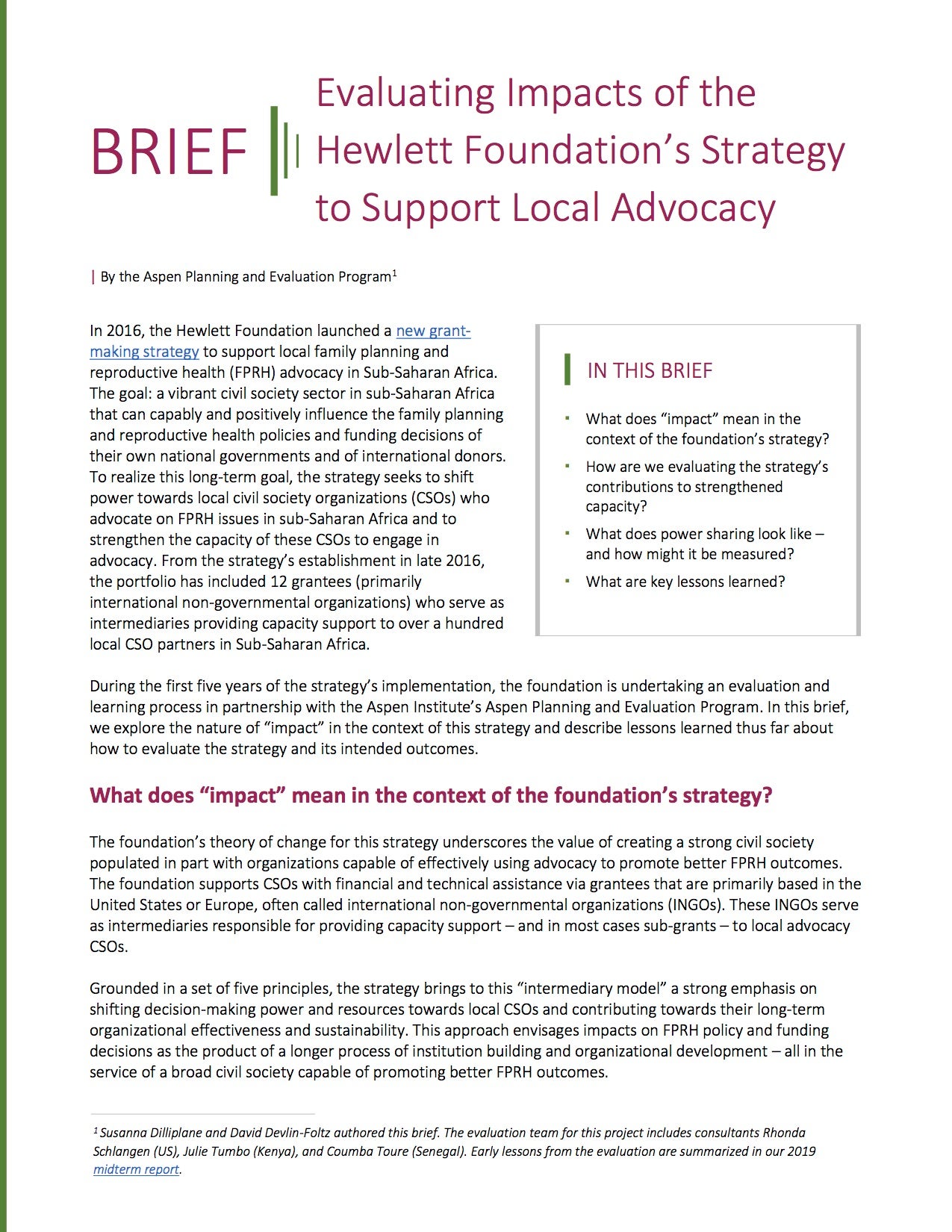In 2016, the William and Flora Hewlett Foundation launched a new grant-making strategy to support local family planning and reproductive health (FPRH) advocacy in Sub-Saharan Africa. The goal: support vibrant African organizations able to positively influence their government’s FPRH policies and funding decisions. The strategy seeks to shift power towards the local civil society organizations (CSOs) doing the advocacy work and to strengthen their capacity to advocate. During the first five years of the strategy’s implementation, the foundation is undertaking an evaluation and learning process in partnership with the Aspen Institute’s Aspen Planning and Evaluation Program (APEP).
In this brief, we explore the nature of “impact” in the context of this strategy and describe lessons learned thus far about how to evaluate the strategy and its intended outcomes.
Interested readers can also find early lessons from the evaluation summarized in our 2019 midterm report.


